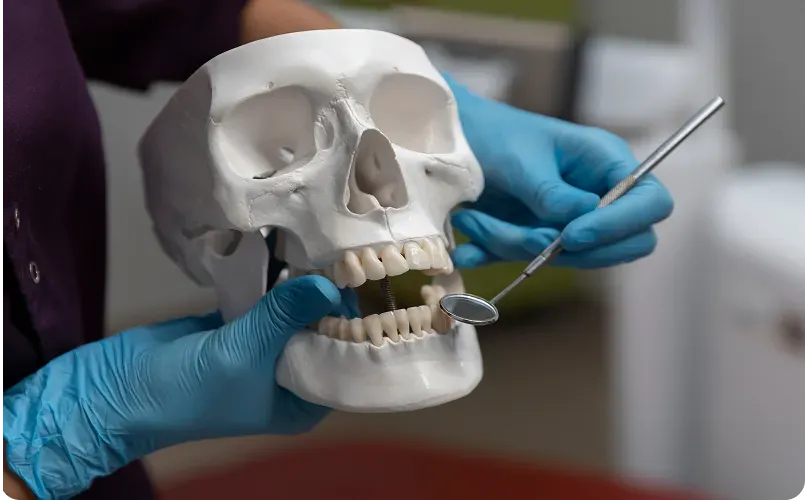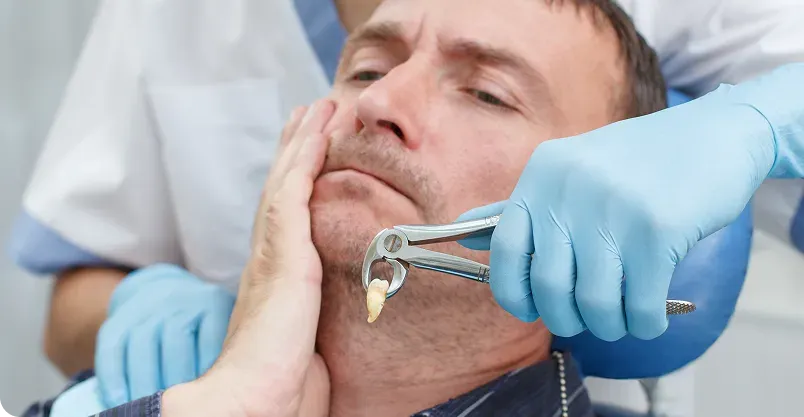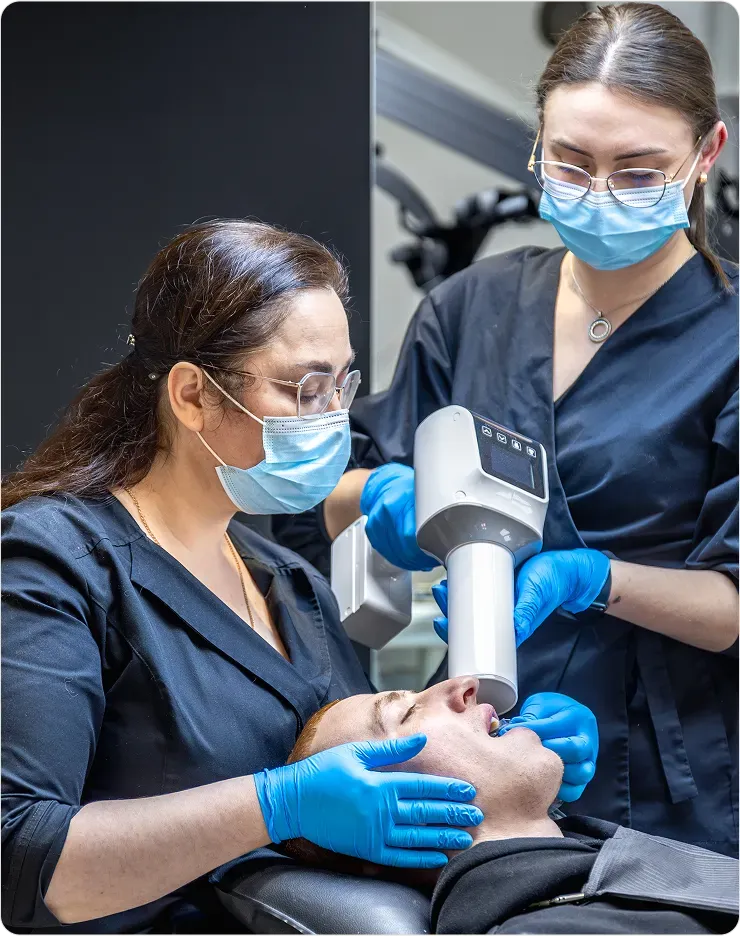
Importance of Bone Graft
Bone grafting plays a critical role in restoring jawbone health and ensuring long-term success for dental implants and other treatments.
Essential for Implant Support
Without enough bone, implants can’t anchor properly. Grafting rebuilds lost structure, making implant placement safe and reliable.
Preserving Facial Structure and Function
Bone grafting prevents jaw collapse after tooth loss, maintaining natural contours and supporting everyday functions like chewing and speaking.
How Bone Grafting Helps Restore Jaw Structure?
Bone grafting provides a solid foundation and prevents further loss. Here’s what it can do:

1. Jawbone Regeneration
Stimulates natural bone growth by providing a scaffold for new tissue development in weakened areas.
2. Implant Support
Strengthens the jaw to ensure stable anchorage for dental implants, improving their long-term success.
3. Facial Aesthetics
Preserves the shape of the jaw and face by maintaining bone volume after tooth loss.
4. Ridge Preservation
Maintains the natural contour of the alveolar ridge after tooth extraction.
5. Prevention of Future Loss
Reinforces vulnerable areas to prevent bone collapse and maintain oral function.
Why Is It Important To Bone Graft?
EXTRACTION WITH BONE GRAFT






Specialized Procedures Like Sinus Lifts
Some patients may require additional support such as a sinus lift when upper jaw bone height is insufficient. These procedures enhance graft success and make implants possible where space is limited:
- Sinus elevation
This technique gently raises the floor of the maxillary sinus to make room for new bone growth. By lifting the sinus membrane, the space beneath becomes available for grafting material.
- Membrane barrier placement
A protective membrane may be placed to act as a barrier between the bone graft and the sinus cavity. This helps promote proper healing and prevents soft tissue from interfering with bone regeneration.
- Precise Surgical Access
The procedure typically involves creating a small access point above the upper back teeth (usually the molars or premolars), allowing the clinician to reach the sinus floor with accuracy and minimal disruption.
- Bone Graft Placement
Once the sinus membrane is lifted, bone graft material is carefully packed into the created space. Over time, this graft integrates with the existing bone, increasing its height and density to support future implants.
Do I Need a Bone Graft Before Implants?
If you’ve experienced tooth loss, facial trauma, or gum disease, you may need a bone graft before implant treatment. Your dentist will evaluate jaw density and determine if jaw bone grafting in Pinole is required for implant success.

What to Expect During the Grafting Procedure?
Here’s a brief breakdown of the bone grafting process at Top Pinole Dental:

What to Expect During the Grafting Procedure?
Here’s a brief breakdown of the bone grafting process at Top Pinole Dental:
Diagnostic Imaging
Your dentist examines jawbone structure to plan graft placement precisely.
Graft Material Selection
Options like autograft, synthetic grafts, or bone substitutes are chosen based on your condition.
Graft Placement
The area is cleaned, and the graft material is inserted into the jawbone, often secured with a membrane barrier.
Healing & Integration
Over several months, the graft fuses naturally with your bone, creating the base for future implants.
Post-Op Follow-Up
Monitoring ensures successful healing and readiness for implant placement.

Book an Implant Bone Graft Specialist in Pinole
Our experienced implant bone graft specialist in Pinole is here to help you rebuild your jaw for strong, lasting implant results. Schedule a consultation to explore your grafting options and restore dental function.
Book NowSupport Your Smile from the Foundation Up
From jawbone regeneration to implant readiness, bone grafting in Pinole plays a vital role in long-term oral health. Trust Top Pinole Dental for advanced care and personalized treatment plans that lay the groundwork for your future smile.
